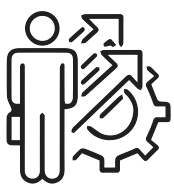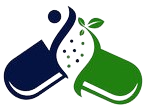About Us
About the Faculty
Vision
Mission
Director's Desk
Graduate Attributes (GA)
About the Faculty
Overview
Pharmacy is the clinical health science that links medical science with chemistry and it is charged with the discovery, production, disposal, safe and effective use, and control of medications and drugs. The practice of pharmacy requires excellent knowledge of drugs, their mechanism of action, side effects, interactions, mobility and toxicity. At the same time, it requires knowledge of treatment and understanding of the pathological process.
Pharmacy is an interdisciplinary profession that combines knowledge from various scientific domains, including chemistry, biology, and medicine. Pharmacists play a crucial role in ensuring that medications are used safely and effectively, working closely with healthcare providers to optimize patient care.
Pharmacy not only involves understanding how drugs work in the body but also the broader context, such as patient-specific factors like age, weight, comorbidities, and genetic makeup. This helps pharmacists make informed decisions about dosing, drug selection, and potential drug interactions.
About the Faculty
The faculty of Pharmaceutical Science & Technology (FPST), AKS University, Satna is one of the premier institutions for pharmaceutical education and research in the Vindhya Region. The college (Rajiv Gandhi Institute of Pharmacy) was started in the year 2006 affiliated to the Rajiv Gandhi Technological University, Bhopal and now became a constituent Unit of AKS University in 2012. The faculty of Pharmaceutical Science & Technology (Rajiv Gandhi Institute of Pharmacy) is approved from Pharmacy Council of India, New Delhi. The faculty of Pharmaceutical Science & Technology now offers D.Pharm., B.Pharm., M.Pharm (Pharmaceutical Chemistry), M.Pharm (Pharmaceutics) & Ph.D. Programmes.
Achieving milestone by implementing NEP-2020
- Infrastructure
- Research & Development
- Translational Research for Innovation
- Skill Development
- Placements
Glimpses of the Pharmacy Department
Strength
More than
550
students

Faculty & Staff
34
Experienced, Skilled & Research Oriented Faculties & Staff

Program Offered
- D.Pharm.
- B.Pharm.
- B.Pharm. Lateral Entry
- M.Pharm (Pharmaceutical Chemistry)
- M.Pharm (Pharmaceutics)
- Ph.D.

Ecosystem for Research, Innovation & Staff Development
- Dedicated Research Lab
- LSSSDC Skill Program
- High Impact Publications
- Patents

Vision
Vision
To be recognized globally for academic and research excellence, meeting the evolving needs of the pharmacy profession and society.
Mission
Mission
1. To promote and train professionals in accordance with global standards for social and pharmaceutical needs, through structured training programs such as B.Pharm., M.Pharm., and Ph.D., ensuring professional pharmaceutical education and the development of effective competencies.
2. To achieve academic excellence in pharmaceutical sciences by fostering an innovative teaching and learning process.
3. To establish a recognized research center that addresses the evolving needs of the pharmacy profession and society.
4.To enhance skills through hands-on, experimental knowledge in line with the global requirements of the pharmaceutical industry and society.
2. To achieve academic excellence in pharmaceutical sciences by fostering an innovative teaching and learning process.
3. To establish a recognized research center that addresses the evolving needs of the pharmacy profession and society.
4.To enhance skills through hands-on, experimental knowledge in line with the global requirements of the pharmaceutical industry and society.
Director's Desk
Dr. Surya Prakash Gupta
Professor & Director Department of PharmacyAKS University, Satna (M.P.) India – 485001

Message
It is with great pride and pleasure that I welcome you to the Department of Pharmacy at AKS University, Satna.
Pharmacy is a noble profession that plays a critical role in the healthcare system, bridging the gap between medical science and patient care. At AKS University, our department is committed to nurturing competent, ethical, and innovative pharmacists who are well-equipped to meet the evolving demands of the pharmaceutical industry, clinical practice, and research.
We offer a curriculum that is not only comprehensive and aligned with national standards but also enriched with modern teaching methodologies, hands-on laboratory experience, and industry exposure. Our dedicated faculty members are passionate educators and researchers, guiding students with both academic excellence and mentorship. In addition to strong academic programs, we encourage students to participate in co-curricular and extracurricular activities that foster leadership, teamwork, and a holistic approach to professional development.
The Department of Pharmacy continues to grow as a center of excellence in pharmaceutical education and research. Whether you are a prospective student, parent, researcher, or industry partner, I invite you to explore the opportunities our department has to offer and become a part of our vibrant and forward-thinking community.
Together, let us contribute to the advancement of healthcare and the well-being of society.
Pharmacy is a noble profession that plays a critical role in the healthcare system, bridging the gap between medical science and patient care. At AKS University, our department is committed to nurturing competent, ethical, and innovative pharmacists who are well-equipped to meet the evolving demands of the pharmaceutical industry, clinical practice, and research.
We offer a curriculum that is not only comprehensive and aligned with national standards but also enriched with modern teaching methodologies, hands-on laboratory experience, and industry exposure. Our dedicated faculty members are passionate educators and researchers, guiding students with both academic excellence and mentorship. In addition to strong academic programs, we encourage students to participate in co-curricular and extracurricular activities that foster leadership, teamwork, and a holistic approach to professional development.
The Department of Pharmacy continues to grow as a center of excellence in pharmaceutical education and research. Whether you are a prospective student, parent, researcher, or industry partner, I invite you to explore the opportunities our department has to offer and become a part of our vibrant and forward-thinking community.
Together, let us contribute to the advancement of healthcare and the well-being of society.
Graduate Attributes (GA)
Graduate Attributes (GA)
1. Pharmacy Knowledge : Possess knowledge and comprehension of the core information associated with the profession of pharmacy, including biomedical sciences; pharmaceutical sciences; behavioral, social, and administrative pharmacy sciences; and manufacturing practices.
2. Thinking Abilities : Utilize the principles of scientific inquiry, thinking analytically, clearly and critically, while solving problems and making decisions during daily practice. Find, analyse, evaluate and apply information systematically and shall make defensible decisions.
3. Planning Abilities : Demonstrate effective planning abilities including time management, resource management, delegation skills and organizational skills. Develop and implement plans and organize work to meet deadlines.
4. Leadership skills : Understand and consider the human reaction to change, motivation issues, leadership and team-building when planning changes required for fulfillment of practice, professional and societal responsibilities. Assume participatory roles as responsible citizens or leadership roles when appropriate to facilitate improvement in health and well-being.
5. Professional Identity : Understand, analyze and communicate the value of their professional roles in society (e.g. health care professionals, suppliers of pharmaceuticals, promoters of health, educators, business managers, employers, employees) through consideration of historical, social, economic and political issues.
6. The Pharmacist and society : Apply reasoning informed by the contextual knowledge to assess societal, health, safety, legal and cultural issues and the consequent responsibilities relevant to the professional pharmacy practice.
7. Environment and sustainability : Understand the impact of the professional pharmacy solutions in societal and environmental contexts, and demonstrate the knowledge of, and need for sustainable development.
8. Ethics : Honor personal values and apply ethical principles in professional and social contexts. Demonstrate behaviour that recognizes cultural and personal variability in values, communication and lifestyles. Use ethical frameworks; apply ethical principles while making decisions and take responsibility for the outcomes associated with the decisions.
9. Communication : Communicate effectively with the pharmacy community and with society at large, such as, being able to comprehend and write effective reports, make effective Presentations and documentation, and give and receive clear instructions.
10. Modern tool usage : Learn, select, and apply appropriate methods and procedures, resources, and modern pharmacy-related computing tools with an understanding of the limitations.
11. Life-long learning : Recognize the need for, and have the preparation and ability to engage in independent and life-long learning in the broadest context of technological change. Self-assess and use feedback effectively from others to identify learning needs and to satisfy these needs on an ongoing basis.
2. Thinking Abilities : Utilize the principles of scientific inquiry, thinking analytically, clearly and critically, while solving problems and making decisions during daily practice. Find, analyse, evaluate and apply information systematically and shall make defensible decisions.
3. Planning Abilities : Demonstrate effective planning abilities including time management, resource management, delegation skills and organizational skills. Develop and implement plans and organize work to meet deadlines.
4. Leadership skills : Understand and consider the human reaction to change, motivation issues, leadership and team-building when planning changes required for fulfillment of practice, professional and societal responsibilities. Assume participatory roles as responsible citizens or leadership roles when appropriate to facilitate improvement in health and well-being.
5. Professional Identity : Understand, analyze and communicate the value of their professional roles in society (e.g. health care professionals, suppliers of pharmaceuticals, promoters of health, educators, business managers, employers, employees) through consideration of historical, social, economic and political issues.
6. The Pharmacist and society : Apply reasoning informed by the contextual knowledge to assess societal, health, safety, legal and cultural issues and the consequent responsibilities relevant to the professional pharmacy practice.
7. Environment and sustainability : Understand the impact of the professional pharmacy solutions in societal and environmental contexts, and demonstrate the knowledge of, and need for sustainable development.
8. Ethics : Honor personal values and apply ethical principles in professional and social contexts. Demonstrate behaviour that recognizes cultural and personal variability in values, communication and lifestyles. Use ethical frameworks; apply ethical principles while making decisions and take responsibility for the outcomes associated with the decisions.
9. Communication : Communicate effectively with the pharmacy community and with society at large, such as, being able to comprehend and write effective reports, make effective Presentations and documentation, and give and receive clear instructions.
10. Modern tool usage : Learn, select, and apply appropriate methods and procedures, resources, and modern pharmacy-related computing tools with an understanding of the limitations.
11. Life-long learning : Recognize the need for, and have the preparation and ability to engage in independent and life-long learning in the broadest context of technological change. Self-assess and use feedback effectively from others to identify learning needs and to satisfy these needs on an ongoing basis.

